2014-2015 Magnuson Scholars Announced
April 3, 2014
On behalf of the University of Washington six Health Sciences Schools and the Magnuson Scholar Program, I am pleased to announce the 2014 – 2015 Magnuson Scholars. Each scholar was nominated by their respective Health Sciences School on the basis of outstanding academic performance and potential contributions to research in the health sciences. As you will see, this year’s scholars appear well-positioned to continue and contribute to the late Senator Warren G. Magnuson’s healthcare legacy.
David M. Anderson, DVM
Executive Director
Health Sciences Administration
The 2014-2015 Magnuson Scholars are:
Worakanya Buranaphatthana
School of Dentistry
Patrick Sanger
School of Medicine
Weichao Yuwen
School of Nursing
Ryan Patrick Seguin
School of Pharmacy
Christine Khosropour
School of Public Health
Ciwang Teyra
School of Social Work
Scholar Profiles
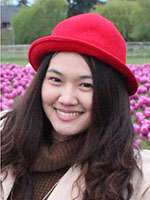 Worakanya Buranaphatthana
Worakanya BuranaphatthanaSchool of Dentistry
After earning her Doctor of Dental Surgery degree in Thailand, Dr. Buranaphatthana applied and was accepted as a PhD student in the Oral Biology Program at the University of Washington (UW) School of Dentistry. Her research interest areas focus on bioengineered cell therapy, bone biology and immunology. She is pursuing her specific interest in mineralization abnormalities with the goal of creating unique therapies to prevent these bone abnormalities in people. In 2013, she joined Dr. Cecilia Giachelli’s UW laboratory to further her knowledge in this area and is working on a project that involves developing a specific cell therapy to treat or prevent abnormal bone formation related to several dental procedures and certain health conditions of trauma. She is also working with collaborators to test the ability of this cell therapy in a mouse model. As described by Dr. Giachelli, “These studies are original and innovative, and will provide an important proof of concept for the use of engineered osteoclasts as a cell therapy for heterotopic ossification.” After completing her Ph.D. studies, she plans to work as a postdoctoral researcher to further develop independent research skills and create research collaborations. Her long-term goal is to utilize the state-of- the-art technologies, knowledge, and translational research skills developed during her UW education in clinical and academic applications in Thailand. Dr. Buranaphatthana hopes to “discover and invent something new that can improve the quality of life for human beings”.
January 2015 Update:
I am honored to have been awarded the Warren G. Magnuson Scholarship for the 2014-2015 academic year at University of Washington. Thank you for your generosity in providing this scholarship.
I am a third year PhD student in Oral Biology working with Dr. Cecilia Giachelli, Professor and Acting Chair of Bioengineering. By awarding me the Magnuson Scholarship, I was able to focus on my studies and put all my energy into my research. My research focuses on the inducible control of osteoclast differentiation as an engineered cell therapy for heterotopic ossification, a type of ectopic calcification which can occur in various body sites including the oral cavity. My studies show that engineered osteoclasts have a contact-independent ability to prevent mineralization by secreting soluble factors. I am currently preparing a first author manuscript detailing these studies. Moreover, I will present this study at the 2015 Biomedical Engineering Society meeting in October. I love to attend conferences since I enjoy presenting my work, traveling to different places, and meeting and networking with other researchers. I wish to continue to do so in the future. This scholarship has helped me a great deal with the pursuit of obtaining my academic goals. It has provided me help in paying for books, publication fees, and costs associated with attending conferences. Moreover, it will support my future independent career profession. After completing my PhD studies, I plan to work as a postdoctoral researcher to further develop my independent research skills and to create research collaborations. My long-term goal is to bring my knowledge and research expertise back to further my work as a lecturer and researcher at the Faculty of Dentistry at Chiang Mai University.
Thanks to your generous support, I feel that I am one step closer to achieving my goals. This award is very meaningful not only financially, but emotionally as well, as it has strengthened my belief in myself. Your support will go a long way in helping me to achieve my educational and career goals.
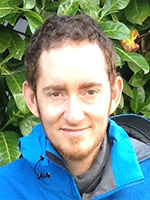 Patrick Sanger
Patrick Sanger
School of Medicine
Patrick Sanger is currently pursuing both an M.D. and Ph.D. in Biomedical & Health Informatics at the University of Washington (UW) School of Medicine. His research interests are in developing patient-centered interventions that improve care coordination and outcomes relevant to both patients and clinicians. Sanger’s dissertation project involves developing and evaluating an mHealth (mobile health) application to allow surgical patients to track their surgical wound after surgery and transmit the information to their clinicians, leading to improved communication and intervention. His ongoing research has particular implications for patients with diabetes who are at significantly greater risk of infection and delayed wound healing. This type of application and the information it provides will be integrated into his primary care practice where he values long-term relationships with patients with a special interest in preventing and managing chronic disease. As described by one of Sanger’s research mentors, Dr. Heather Evans, “Patrick’s educational plan and research trajectory are consistent with the preparation needed to succeed as an independent researcher. His area of interest is unique, and extremely important in that he seeks to leverage data from one of the richest, yet most underutilized sources in healthcare: the patient.” Sanger’s interest and passion for his research and patient care focus are both professional and personal. As he pursues the role of a primary care academic researcher, he states, “I take the principle of ‘doctor as teacher’ seriously…. I am confident that my ‘passion for the basics’ will be the safest, most effective medicine I can offer to most of my patients.”
January 2015 Update:
The Magnuson Scholarship has supported me in what I intend to be my final year of PhD work in Biomedical & Health Informatics. Since the beginning of the year, I have had my first two papers published. The first, titled “Patient perspectives on post-discharge surgical site infections: towards a patient-centered mobile health solution” was published in PLOS One and explores the many challenges patients face communicating about wound complications after hospital discharge. The second paper, which I orally presented at the American Medical Informatics Association Annual Symposium, “Design Considerations for Post-Acute Care mHealth: Patient Perspectives” was published in AMIA Proceedings and is aimed at informing the design of mobile health applications intended for use by patients following major hospitalization. I am currently working on a paper for submission to the Journal of the American Medical Informatics Association tentatively titled “Challenges of being patient-centered in a provider-centric world: design of a post-discharge surgical wound monitoring tool” which explores the tensions that arise when designing a tool that must be acceptable to both patients and providers. I also recently had an abstract accepted at the Surgical Infection Society titled “Developing an SSI risk score incorporating daily objective wound assessments using machine learning”; this work represents a new line of inquiry for me and has given me an opportunity to learn more about machine learning methods and initiate collaboration with investigators in Computer Science. Our goal is to incorporate a small number of objective daily wound observations to automatically predict development of imminent wound infection—and we’ve had very encouraging initial results. Other than working on papers, I was selected as one of eight younger researchers at UW Medicine to compete for the Emerging Inventor of the Year Award. I presented a poster and a one-minute pitch at the event.
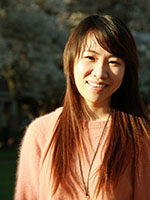 Weichao Yuwen
Weichao Yuwen
School of Nursing
Weichao Yuwen is a third year Ph.D. candidate in the University of Washington (UW) School of Nursing. After graduating with a Bachelor of Science in Nursing from Arizona State University, Yuwen was accepted in 2011 at the UW to pursue her goal of becoming a nurse scholar and educator with an emphasis on mental health issues in ethnic minority populations. Her dissertation research examines sleep-disordered breathing, disease-related symptoms, and health outcomes in children with Juvenile Idiopathic Arthritis (JIA). Her long-term research interest involves pediatric diabetes and its association with sleep disturbances. Disturbed sleep can be associated with a range of adverse health outcomes and reduced quality of life that impacts both the child and parents. Yuwen’s doctoral advisor, Dr. Teresa Ward, Associate Professor in the UW Family and Child Nursing program, has been impressed with Yuwen’s hard work and ability to learn unfamiliar concepts quickly. Dr. Ward noted, “Her research addresses a gap in the literature as little is known about how caring for a child diagnosed with a chronic condition affects the entire family, and disruptions to everyday life evoke different responses from families.” Yuwen’s career goal is to secure a faculty position in a research-intensive academic environment where she can promote healthy sleep in children and adolescents with chronic conditions, and advance sleep science through research and education.
January 2015 Update:
I am currently a forth year PhD candidate, and I will be conducting my dissertation study this year. The overall purpose of my dissertation is to gain new knowledge about the interrelations among parent-child sleep patterns, sleep disturbances, and family functioning (cohesion and adaptability) in 2 to 5 year- old children newly diagnosed with juvenile idiopathic arthritis (JIA), compared to their peers without this chronic condition, and how parents manage children newly diagnosed with JIA. The dissertation will include a mixed method approach. The qualitative study will describe how parents manage children newly diagnosed with JIA. I will interview parents and describe parents’ perceived stress, illness-related challenges, coping behaviors, and adaptation to the stress and challenges when their child is newly diagnosed with JIA. The quantitative study is a secondary analysis that will examine sleep patterns and sleep disturbances in children newly diagnosed with JIA and their parents, to a comparison group of children without JIA and their parents, and to examine the associations between disturbed sleep and family functioning among these families. I will use part of the Magnuson award to support my study.
I am also pursuing a statistical concentration through the UW Center for Statistics and the Social Sciences. I am learning advanced analytical methods such as multilevel modeling, structural equation modeling, and maximum likelihood estimation. The Magnuson award has supported me significantly with tuition so that I was able to pursue this statistical concentration to further help me learn and grow in research.
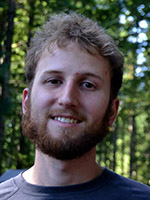 Ryan Patrick Seguin
Ryan Patrick Seguin
School of Pharmacy
In 2010, Ryan Seguin entered the PhD program in the Department of Medicinal Chemistry at the University Of Washington (UW) School of Pharmacy. A native of Washington State, he received his Bachelor of Science in Chemistry from the UW while working part-time in a commercial analytical laboratory. His study of enzymes and the impact small changes in protein structure and drug structure can have on human health led to his decision to pursue research on drug metabolism and drug-to-drug interactions in vivo. Seguin joined UW Associate Professor Dr. Kent Kunze’s laboratory in 2011 and was selected as a trainee on an NIH-sponsored Pharmacological Sciences Training Grant that provides an increased in-depth interdisciplinary training experience. Dr. Kunze noted, “…Seguin has the motivation, work ethic, and creativity to become a successful independent academic scientist.” Seguin also participates in science outreach and advocacy to the community and hopes that “my research will lead to the discovery of novel therapeutics or unveil the basis for enigmatic health disorders with little or no treatment options available. The main driving force is always to improve health and quality of life for others either directly through development of such treatment options or indirectly by enhancing our understanding of drug targets, design, and metabolism.” In addition to his career goal of directing his own research in academic or industry, Seguin plans to continue teaching, mentoring and spreading knowledge and enthusiasm for science.
January 2015 Update:
During my first six months as a Magnuson Scholar, I have had many opportunities to grow professionally and expand on my research endeavors. During a 3-month internship at the local Seattle biotechnology company Amgen, I investigated alternative mechanisms of drug clearance in the presence of plasma binding proteins. At the UW School of Pharmacy’s annual Corporate Advisory Board Meeting, I presented new research and interfaced with leaders in the pharmaceutical industry. I then traveled to San Francisco to participate in the International and Japanese Societies for the Study of Xenobiotics (ISSX/JSSX) joint meeting. I heard many interesting and stimulating talks from experts in various fields of drug metabolism, drug development, and toxicology. At ISSX, I presented a poster on my research relating to drug-drug interactions involving the commonly-prescribed antibiotic class, fluoroquinolones. Currently, I am preparing a manuscript for publication which will elaborate on how members from this drug class precipitate drug-drug interactions and the structural basis for why this occurs. I am also preparing a poster abstract for presentation at the upcoming International Conference on Cytochrome P450 which will take place in Tokyo in June. I hope to receive valuable feedback on a new research project involving metabolism of alkylamines, a pharmacologically important class of drugs.
Support from the Magnuson award has enabled me to take full advantage of these opportunities. I have used my funds to pay for membership to professional organizations as well as conference registration and travel fees. Exposure to a broad array of research and the ability to network with scientists both from within and outside of my area of expertise helps me grow and fuels my curiosity. In particular, I enjoy talking to others who work on topics unfamiliar to me. In these instances I learn a great deal while also gaining confidence that I can engage in multidisciplinary discussions and spot connections between different areas of research. I believe this skill set is becoming increasingly valuable in our changing research environment. As an additional perk, traveling to conferences provides me with a great opportunity to seek out potential post-doctoral positions and draw a road map for my career in the sciences. I look forward to the conversations I will have in Tokyo and I feel fortunate to have the support of the Magnuson scholarship in pursuing a career in science.
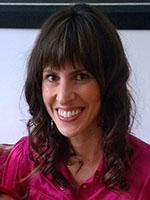 Christine Khosropour
Christine Khosropour
School of Public Health
After earning her Master’s in Public Health in Epidemiology from Emory University in 2010, Christine Khosropour entered the University of Washington (UW) School of Public Health Epidemiology doctoral program. Early in her career, Ms. Khosropour was drawn to the field of HIV and STI (Sexually Transmitted Infections) prevention research. She states, “The integration of behavioral and biomedical aspects of HIV/STI research provides unique methodological challenges, and successful interventions have the potential to have a major impact on disease transmission.” In nominating Ms. Khosropour, Drs. Lisa Manhart and Matthew Golden noted her productivity and that her research ”will be an important contribution to the HIV prevention field, and her work is already recognized as high quality and innovative by colleagues in the STI/HIV prevention field.” With a strong background in behavioral prevention, Ms. Khosropour quickly gained expertise in the clinical epidemiology of STD syndromes while writing and contributing to manuscripts and facilitating two grant applications. Following completion of her PhD program, Khosropour plans to pursue a research career with a focus on HIV/STI prevention with the goal of studying critical research questions focused on practical and implementable outcomes. She credits her experiences at Emory University and the UW with fostering her research goals as well as her desire to continue working with colleagues to incorporate multidisciplinary perspectives, and develop research partnerships with local and state public health departments. Khosropour has considerable experience teaching and mentoring students and plans to continue this practice throughout her research career.
Janaury 2015 Update:
The Magnuson Scholarship has been instrumental in supporting my work over the past several months. Since receiving the Magnuson award, I have made extensive progress on my dissertation as well as ancillary projects that I have pursued while my dissertation data collection is underway.
To date, we have enrolled >3,300 men who have sex with men (MSM) in my dissertation research study, the goal of which is to understand the association between sexual behaviors and HIV/STI risk. Recently we expanded recruitment to Gay City Health Project, a community-based HIV/STI testing center in Seattle. I have been instrumental in initiating the computer-based data collection system at Gay City, which will now be used for routine clinical data collection as well as for the research study. In addition to my dissertation work, I have continued to serve as the data manger for a large clinical trial examining therapies for the treatment of male urethral infections. I have also had the opportunity to design the data collection instruments used in the PHSKC PrEP clinic. PrEP (pre-exposure prophylaxis) is a daily medication for HIV-negative persons to prevent the acquisition of HIV. There are a number of outstanding clinical and research questions regarding the uptake and use of PrEP among MSM and it is exciting to be on the forefront of this field.
As a result of the aforementioned work, I have completed two manuscripts (one published and one in press) and one commissioned editorial (in press); two additional manuscripts are in progress. I presented my research at the 2014 National STD Prevention Conference and will be presenting at CROI 2015 (an international HIV conference) in February. In October 2014 I was asked to speak about my work at the annual HIV & STD Research Symposium at the University of Washington and was asked to serve as a junior faculty member of F1000 prime, a post-publication peer review service. I was also recently notified that I am a recipient of the CROI 2015 Young Investigator Award.
In summary, my work in the past 6 months has continued to bridge the clinical and research aspects of HIV/STI prevention. This work has not only broadened my epidemiologic skills, but it has also fostered my professional growth, as I have forged new partnerships with community-based organizations and have continued my collaborations with PHSKC and UW. I look forward to continuing these projects, and initiating new ones, in the coming months.
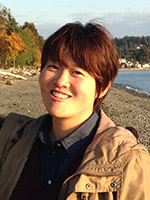 Ciwang Teyra (Mei-Yi Lee)
Ciwang Teyra (Mei-Yi Lee)
School of Social Work
Ciwang Teyra entered the Social Welfare PhD program at the University of Washington School of Social Work in 2011 to pursue her research interests in global indigenous health disparities. Her research focus was both inspired and informed by her experiences as an indigenous woman born and raised in the Truku Nation of Taiwan. Ms. Teyra’s research focuses on the critical issues of historical trauma, substance use, and resiliency. Her current study uses a mixed methods approach and focuses on alleviating alcohol abuse among a specific indigenous tribe in Taiwan. UW Associate Professor Dr. Tessa Evans-Campbell has worked with Ms. Teyra on a number of projects and noted, “Her experiences in the field absolutely contextualize her academic work and give her an ability to analyze research, policy, and practice in unique and complex ways.” Ms. Teyra’s long-term goal is to expand her current research to develop culturally-responsive interventions in order to reduce indigenous health disparities. Her approach in this exciting and emerging area of research will incorporate building global collaborations and expanding international partnerships. She is particularly interested in addressing the complex issues of health disparity through the development of inter- and transdisciplinary collaborations. Ms. Teyra states, “These collaborations are crucial in creating a broader and deeper understanding of the historical and social contexts of indigenous health disparities…they will also help develop culturally-based interventions and preventive strategies in promoting indigenous health”. She plans to give back to her community by becoming a leading scholar who will enrich understanding while developing culturally-informed interventions.
January 2015 Update:
The critical importance of indigenous health, wellbeing and resilience is at the core of my academic and career interests as an indigenous doctoral student in Social Welfare at the University of Washington. My research interests in indigenous health disparities are inspired and informed by my experiences as an indigenous woman born in the Truku Nation of Taiwan. Similar to many international indigenous communities, health disparities are not surprising for Taiwanese indigenous peoples in terms of their exposure to a history of colonial oppression, associated historical trauma and ongoing social, political and economic marginalization and disadvantage. Although facing numerous challenges, indigenous peoples have shown remarkable strengths, resiliency, and positive health outcomes. My research interests particularly focus on identifying and understanding existing resilience factors that can promote indigenous healthful outcomes despite exposure to both historical and ongoing trauma.
The topic of my qualifying paper for general exam discussed indigenous cultural strengths as important protective mechanism that can promote healthy communities for indigenous peoples. With the support of the Magnuson Scholarship, I was able to engage in and concentrate on my scholarly work and advanced to doctoral candidacy in the past year. In addition, the Magnuson Scholarship has been facilitating the achievement of my scholarly growth by providing the flexibility for me to disseminate my work at both national and international conferences.